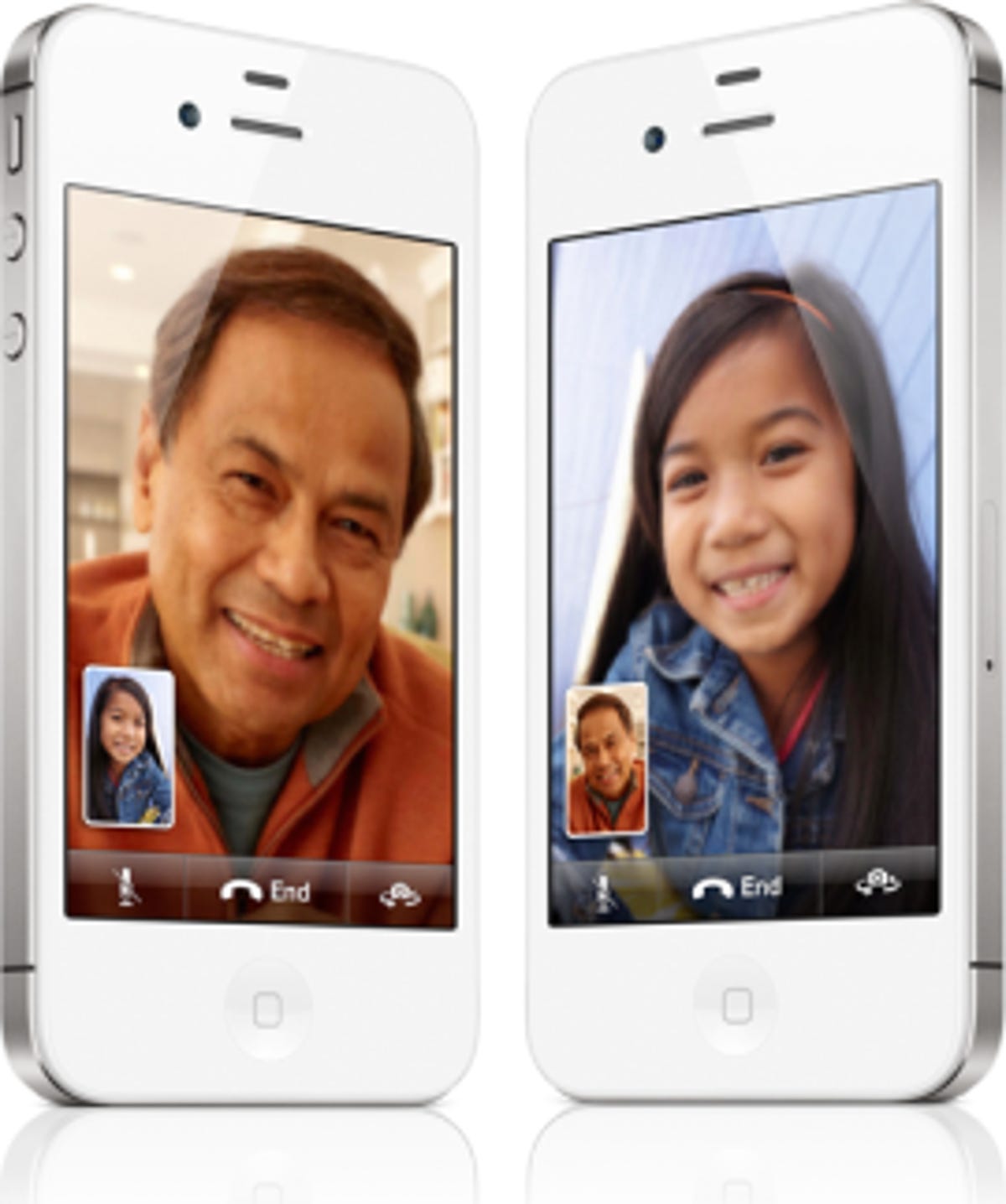In a blog post Wednesday, AT&T defended its new policy of restricting use of Apple’s FaceTime app so that only customers on its Mobile Share plans can take advantage of it. But consumer advocates still say AT&T is violating the Federal Communications Commission’s Open Internet rules.

Apple
Last week, AT&T confirmed that it has plans to make the popular video chat app FaceTime, which is preloaded on all iPhone 4 devices and newer iPhones, available for use on its 3G and 4G networks. Previously, the preloaded app worked only on Wi-Fi networks, but with the update of Apple’s iOS 6 operating system, the app now works on cellular networks. However, the one caveat that sparked controversy is that AT&T said it would allow only customers with its new Family Share plans to access the app over a cellular network.
Almost immediately, consumer advocates criticized the company for violating FCC rules established to keep the Internet open.
“AT&T’s latest proposal is a clear violation of Net Neutrality — the fundamental principle that keeps the open Internet free from discrimination — and a serious test of whether the Federal Communications Commission will protect mobile users,” Craig Aaron, president and CEO of Free Press, wrote in a blog post on The Huffington Post.
Related stories
- Only AT&T Mobile Share plan users can FaceTime over its cellular network
- AT&T’s FaceTime limits might conflict with FCC rules
- Do AT&T’s FaceTime limits break FCC rules?
In another blog post, Bob Quinn, AT&T’s senior vice president of regulatory affairs, argued that the company’s policy in no way violates the FCC’s Net Neutrality rules. He explained that according to the rules established by the commission, wireless operators are required to do two things:
- They must inform customers how they manage their networks as well as provide other information on performance and commercial terms of their broadband Internet access.
- They must not block applications that compete with a carrier’s voice or video telephony services. This rule is also subject to restrictions for reasonable network management.
Quinn argued that AT&T’s plans for FaceTime will not violate either requirement.
“Our policies regarding FaceTime will be fully transparent to all consumers, and no one has argued to the contrary,” he said. “There is no transparency issue here. Nor is there a blocking issue.”
He went on to say that the FCC’s Net neutrality rules do not regulate the availability to customers of applications that are preloaded on phones.
“Indeed, the rules do not require that providers make available any preloaded apps,” he said. “Rather, they address whether customers are able to download apps that compete with our voice or video telephony services.”
In a statement, Free Press’ S. Derek Turner fired back in response to AT&T’s blog post:
“AT&T is inventing words that are not in the FCC’s rules in a weak attempt to justify its blocking of FaceTime. The FCC’s rules are crystal clear: AT&T is not permitted to block voice or video telephony applications that compete with its own services. There is simply nothing in the rules that distinguishes ‘preloaded’ applications from ‘downloaded’ applications.”
Free Press has also taken issue with AT&T’s claims that it requires customers to subscribe to the share plans because the FaceTime app may use more wireless data. Indeed, this argument makes little sense given that subscribers of the shared data plans actually get less data to use than those on a tiered plan. AT&T offers 1GB of data under its share plan and 3GB of data under its traditional tiered offering.
Instead, Free Press argues that AT&T’s motivation for this policy is to get customers to pay more money for voice minutes, which they will likely need less of if they use the FaceTime app.
“FaceTime allows people to reduce their use of voice services, but AT&T is making you buy unlimited voice in order to use FaceTime over mobile,” Free Press’s Turner said in his statement. “AT&T is trying to invent a loophole in the rules, but this kind of anticonsumer behavior is the exact thing the FCC’s protections are designed to prohibit.”
Other consumer advocates agree that AT&T is simply trying to protect its voice business by restricting how the Apple FaceTime app can be used.
“There’s no doubt that these apps are a competitive threat to AT&T’s voice service,” said John Bergmayer, senior staff attorney at Public Knowledge. “But as the FCC made clear in its Open Internet rules, mobile providers must compete with these new services fair and square, and not by engaging in discriminatory behavior.”
The FCC has not yet weighed in on the issue. And an agency representative declined to comment.



